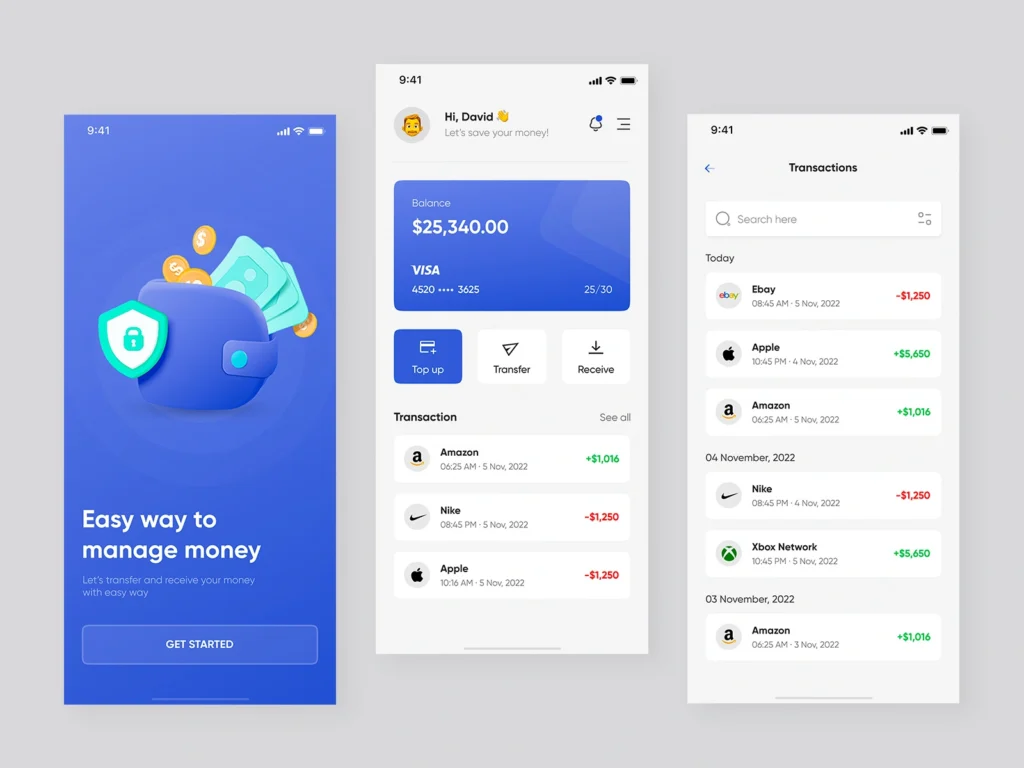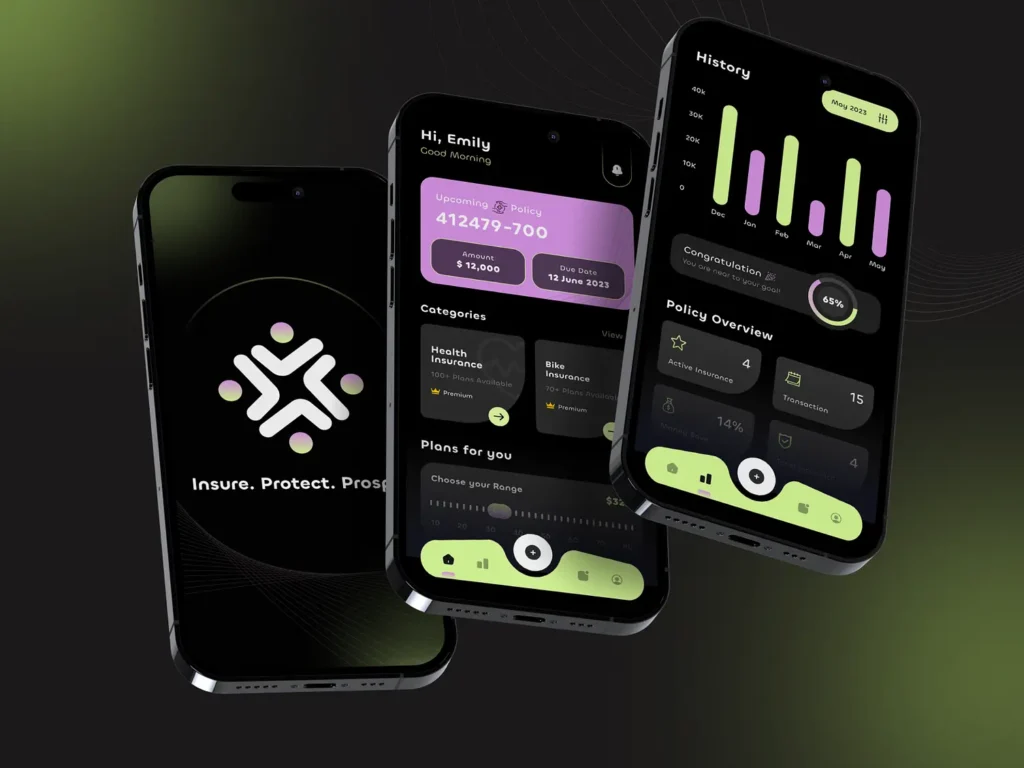IT Outsourcing For Small Businesses: Cost & Benefits
In today’s digital age, Information Technology (IT) has become an integral part of every business, regardless of its size. For small businesses, effective IT strategies can be the difference between rapid growth and stagnation. However, maintaining an in-house IT department can be resource-intensive and challenging, especially for small and medium enterprises (SMEs). This is where IT Outsourcing For Small Businesses comes into play. According to a study by Deloitte, 31% of IT services have been outsourced as of 2020, and this number is expected to grow, with SMEs contributing significantly to this trend.
1. Understanding IT Outsourcing

There are three main types of IT outsourcing:
- Offshore outsourcing: This is when a company contracts an external organization based in a different country, often where labor costs are lower. For instance, many U.S. companies outsource IT services to Southeast Asia like Vietnam or Eastern Europe.
- Nearshore outsourcing: This involves outsourcing work to a neighboring or nearby country. This model can reduce language and time zone challenges associated with offshore outsourcing.
- Onshore or domestic outsourcing: This is when a company contracts an external company within the same country. While this can be more costly, it can also lead to better communication and easier coordination.
According to a survey by Clutch, 37% of small businesses currently outsource a business process, with IT services being one of the most commonly outsourced functions. This trend underlines the increasing relevance and adoption of IT outsourcing among small businesses.
Get in touch with Savvycom’s experts for a free consultation. We’ll help you decide on next steps, explain how the development process is organized, and provide you with a free project estimate.
2. Benefits of IT Outsourcing for Small Businesses
In an era where technology drives business growth, IT outsourcing has emerged as a game-changer for small businesses. Buckle up as we delve into the numerous benefits it offers!
2.1. Cost Savings and Efficiency

- Pay for what you use: You only pay for the services you need, when you need them, eliminating the need for a full-time, in-house IT department.
- Improved Efficiency: By outsourcing, you’re entrusting IT tasks to experts, which leads to swift and accurate task execution.
- Reduced Overheads: You can save on expenses such as recruitment, training, equipment, and software licenses.
2.2. Access to Global Talent and Expertise
- Global Talent Pool: Outsourcing breaks geographic boundaries, giving you access to a global pool of IT experts.
- Specialized Expertise: You gain access to professionals with specialized skills that might be scarce locally.
- Quality Assurance: These experts can enhance the quality of your IT operations, leading to superior products and services.
- Innovation Catalyst: Access to global expertise can foster innovation and keep your business up-to-date with latest IT trends.
2.3. Focus on Core Business Activities
- Core Focus: Outsourcing IT tasks allows your team to concentrate on core operations and strategic objectives.
- Increased Productivity: Employees can focus on their areas of expertise, leading to increased productivity.
- Time Efficiency: IT outsourcing saves time spent on tasks outside your team’s skill set, leading to more efficient use of time.
- Case Studies: Many businesses have experienced accelerated growth and efficiency by focusing on their core competencies.
2.4. Scalability and Flexibility
- Easy Scaling: Outsourcing offers the ability to quickly scale IT operations based on business needs and demand.
- Adaptability: Outsourcing providers can adapt to your project requirements, offering flexibility in project management and team structure.
- Cost Variability: With outsourcing, your costs can vary with your needs, saving you money during slower periods.
- Resource Allocation: You can allocate and reallocate resources quickly and easily, based on your current needs.
2.5. Risk Management
- Risk Reduction: Outsourcing can help mitigate risks associated with IT operations, cybersecurity threats, and data breaches.
- Expert Handling: Specialized IT outsourcing firms are equipped to handle data security, disaster recovery, and compliance issues.
- Shared Responsibility: The outsourcing provider shares the responsibility of managing your IT operations, reducing your overall risk.
- Up-to-date Compliance: Outsourcing firms stay current with compliance regulations, ensuring you’re always in line with legal and industry standards.
2.6. Innovation and Technological Advancement
- Access to Latest Technologies: Outsourcing can provide businesses with access to the latest technologies and IT innovations.
- Stay Competitive: Having access to advanced technology can give businesses a competitive edge in the market.
- Continuous Upgrades: Outsourcing firms continuously upgrade their tools and technologies to stay competitive, ensuring you’re always using up-to-date solutions.
- Tech-driven Business Growth: With the latest IT tools at your disposal, your business is primed for innovative, tech-driven growth.
2.7. 24/7 Service and Support
- Round-the-Clock Support: Outsourcing can provide continuous IT support and customer service, ensuring your operations never have to pause.
- Immediate Troubleshooting: Any IT issues can be addressed immediately, minimizing downtime and disruption.
- Customer Satisfaction: 24/7 support ensures customer queries and issues are resolved promptly, improving customer satisfaction.
- Peace of Mind: Knowing that professionals are managing your IT around the clock offers peace of mind, letting you focus on running your business.
2.8. Reduced Time to Market
- Faster Processes: Outsourcing can speed up everything from development to deployment, reducing time to market for products or services.
- Competitive Advantage: A shorter time to market can give you a competitive edge, allowing you to respond to market changes quickly.
- Resource Optimization: Faster processes mean resources are used more efficiently, leading to better outcomes.
- Success Stories: Numerous businesses have leveraged this advantage to launch successful products and services.
2.9. Resource Management
- Resource Liberation: Outsourcing can free up valuable resources, including office space and management time.
- Efficient Utilization: Freed-up resources can be utilized for business growth and efficiency.
- Cost Management: Savings from resource management can be used for other strategic investments.
- Improved Focus: Management can focus on business strategy and growth, rather than being bogged down by IT issues.
2.10. Sustainable IT Infrastructure
- Robust Infrastructure: Outsourcing can help establish a robust and sustainable IT infrastructure.
- Business Continuity: A strong IT infrastructure supports business continuity, ensuring your operations are always up and running.
- Scalability: A robust infrastructure can scale with your business, supporting long-term growth.
- Future-readiness: A sustainable IT infrastructure ensures your business is ready for the future, whatever it might bring.
3. How Much Do Outsource IT Services for Small Business Cost?
Outsourcing IT services can vary widely in cost, depending on several key factors. Here’s an overview of these factors:
3.1. Company Size and Needs
- Headcount: Usually, the larger the company, the more IT support it requires. A company with hundreds of employees will likely need a larger outsourced IT team than a small business with a handful of employees.
- Complexity of IT Needs: Companies with more complex IT needs, such as custom software development or data security for sensitive industries, will typically pay more for IT outsourcing.
We’ll help you decide on next steps, explain how the development process is organized, and provide you with a free project estimate.
3.2. Expertise and Skill Level
- Technical Expertise: The cost of outsourcing can depend on the level of technical expertise required. For example, basic IT support will cost less than services requiring high-level expertise, such as cybersecurity or complex system integration.
- Experience Level: Similarly, the experience level of the outsourced professionals can also affect the cost. Senior professionals with extensive experience and expertise will typically cost more than junior professionals.
3.3. IT Outsourcing Models
- Fixed Price Model: In a fixed price model, the scope and timelines are defined at the outset, and the service provider quotes a fixed price for the project. This model is best suited for projects with well-defined requirements and timelines.
- Time and Material Model: In this model, clients pay for the time and resources used by the service provider. This model offers flexibility and is suitable for projects where the scope is not clearly defined at the outset.
- Dedicated Team Model: Under this model, an IT service provider provides a team of professionals who work exclusively on the client’s projects. This model can be more expensive but provides a high degree of control and continuity.
3.4. Location of the Outsourcing Company
The location of the outsourcing company can significantly impact costs due to differences in labor costs. For example, outsourcing IT services to countries like India or the Philippines can be cheaper than outsourcing to North American or European countries.
3.5. Contract Length
Longer-term contracts may offer the advantage of lower rates compared to short-term contracts. The stability of a long-term contract can enable service providers to offer more competitive rates.
Remember, the cheapest option is not always the best. The right outsourcing partner can add significant value to your business, potentially providing a higher return on investment, even if their services cost a bit more.
4. Popular Outsourced IT Services For Small Business
1. Mobile App Development
Mobile app development is one of the most sought-after IT services that small businesses often outsource. As the global mobile app revenue is projected to reach $935.2 billion by 2023 according to Statista, small businesses are keen to tap into this opportunity. Outsourcing this task allows them access to a pool of experts who specialize in the latest mobile technology trends and app development strategies.
2. Software Solution Development
Software solution development is another critical area where small businesses benefit from outsourcing. Custom software solutions can streamline operations, increase productivity, and provide a competitive edge. By outsourcing, businesses can access a wide range of software development expertise, from system design to testing and deployment.
3. Website Design and Development
A professional, user-friendly website is crucial for any business. According to Sweor, it takes about 0.05 seconds for users to form an opinion about your website. Outsourced web developers can create effective, attractive websites that meet specific needs, from e-commerce to interactive content.
4. Data Analytics
Outsourcing data analytics can provide businesses with valuable insights into their operations, customer behavior, and market trends. According to Forbes, 59% of enterprises cite data analytics as essential to their business strategy. Data analytics experts can help businesses leverage their data for better decision making.
5. Cloud Services and Solutions
From data storage to software-as-a-service (SaaS), cloud services are integral to modern business operations. A survey by Flexera reports that 94% of businesses use the cloud. Outsourcing cloud services can ensure secure, efficient cloud operations and help businesses make the most of this technology.
6. Cybersecurity
Protecting business data and systems is critical. Cybersecurity Ventures predicts that by 2025, cybercrime will cost the world $10.5 trillion annually. By outsourcing cybersecurity, businesses can protect against threats, comply with regulations, and recover from security incidents.
7. Help Desk/IT Support
Outsourced IT support can provide quick, effective support for IT incidents, from hardware and software issues to user support. This can free up internal resources and ensure smooth operations.
8. IT Consulting
IT consultants can provide valuable advice on using IT to achieve business objectives, from selecting the right technologies to implementing IT projects. This strategic perspective can help businesses make the most of their IT investments.
9. Blockchain Solution Development
Blockchain technology has gained considerable attention due to its potential to disrupt various industries. According to Mordor Intelligence, the global blockchain market was valued at $3.67 billion in 2020 and is expected to reach $39.7 billion by 2026. Outsourcing blockchain solution development can provide businesses with access to experts in this cutting-edge technology.
10. Artificial Intelligence and Machine Learning
The use of artificial intelligence (AI) and machine learning (ML) is on the rise in businesses of all sizes. According to a report by Statista, the AI market is expected to reach $733.7 billion by 2027. Outsourcing AI and ML projects can help businesses tap into this trend and leverage these advanced technologies without the need for in-house expertise.
What Are The Top 5 Reasons Companies Use Outsourcing?
Top 5 Drivers Behind Companies' Outsourcing Strategies
- Access Specialized Expertise: One of the primary motivations for companies to embrace outsourcing is the ability to tap into specialized expertise.
- Rapid and Cost-Effective Staffing Solutions: The outsourcing process offers a swift and cost-effective resolution to staffing challenges.
- Personnel Focus on Core Tasks: Outsourcing liberates in-house personnel from routine or specialized tasks, allowing them to concentrate on core business functions.
- Flexible Resource Management for Workload Fluctuations: Companies often turn to outsourcing to navigate the ebbs and flows of workload, especially during seasonal peaks or troughs.
- Ensuring Business Continuity: Outsourcing serves as a key component in ensuring business continuity.
How Much Does IT Outsourcing Cost?
On average, outsourcing to a software development company typically incurs costs ranging from $25 to $45 per hour. If opting for a dedicated middle/senior developer, the hourly rate can fluctuate between $20 and $50, contingent on the specific skills and expertise of the offshore developer.
However, the cost of IT outsourcing can vary significantly based on the scope of work, the expertise required, and the pricing model adopted. Two common pricing models include team-based pricing and fixed-cost pricing. Regarding IT outsourcing models and project estimation:
- Dedicated Team Model: A long-term partnership where the outsourcing company provides a dedicated team to work exclusively on your projects. This model is beneficial for large projects with evolving requirements.
- Fixed Price Model: The project scope and timeline are well-defined, and the outsourcing company delivers the project for a fixed price. This model is suitable for small-to-midsize projects with clear specifications.
- Time and Material Model: This model provides the greatest flexibility, as you pay for actual work hours spent on the project. This model is ideal for projects where requirements may change frequently.
Project estimation in outsourcing involves determining the time and resources required for the project. It includes assessing the project size, complexity, and potential risks. Accurate project estimation is crucial for setting realistic deadlines and budgets.
How Do You Calculate Cost Of Outsourcing?
Determining the cost of outsourcing involves a strategic assessment of various factors. Here's a concise 4-step guide to help you calculate outsourcing costs effectively:
- Define Outsourced Functions: Clearly specify the functions or tasks you intend to outsource.
- Evaluate In-House Cost Savings: Calculate the in-house costs associated with the functions earmarked for outsourcing.
- Total Outsourcing Fees: Estimate the total fees associated with outsourcing. This encompasses costs such as service provider fees, hourly rates, or any other charges agreed upon in the outsourcing contract.
- Calculate Cost Differential: Subtract the total outsourcing fees from the in-house costs.
How Do You Choose The Right It Outsourcing Partner?
Choosing an IT outsourcing partner is a critical decision that requires thorough evaluation. Beyond the basic considerations of expertise, experience, references, and cost, delve into the following aspects to ensure a robust and successful partnership:
- Expertise and Experience (Technology Proficiency and Industry Knowledge)
- References and Reputation (Client Testimonials and Online Reviews and Ratings)
- Cost Transparency and Structure (Detailed Cost Breakdown and Scalability Considerations)
- Scalability and Flexibility (Capacity to Scale and Flexibility in Engagement Models)
- Ongoing Support and Maintenance (Post-Implementation Support)
Does Savvycom Provide Dedicated Development Team?
A dedicated development team is a model where an outsourcing company provides a team that works exclusively on your project. They act as an extension of your in-house team. Benefits of this model include:
- Focus: The team is entirely dedicated to your project.
- Flexibility: It's easier to manage changes in project requirements.
- Cost Efficiency: You get a full team without the overhead of hiring in-house.
Looking for a top-notch dedicated development team? Savvycom offers excellent value, providing high-quality dedicated development teams at attractive prices.
From Tech Consulting, End-to-End Product Development to IT Outsourcing Services! Since 2009, Savvycom has been harnessing the power of Digital Technologies that support business’ growth across the variety of industries. We can help you to build high-quality software solutions and products as well as deliver a wide range of related professional services.
Savvycom is right where you need. Contact us now for further consultation:
- Phone: +84 24 3202 9222
- Hotline: +84 352 287 866 (VN)
- Email: [email protected]



